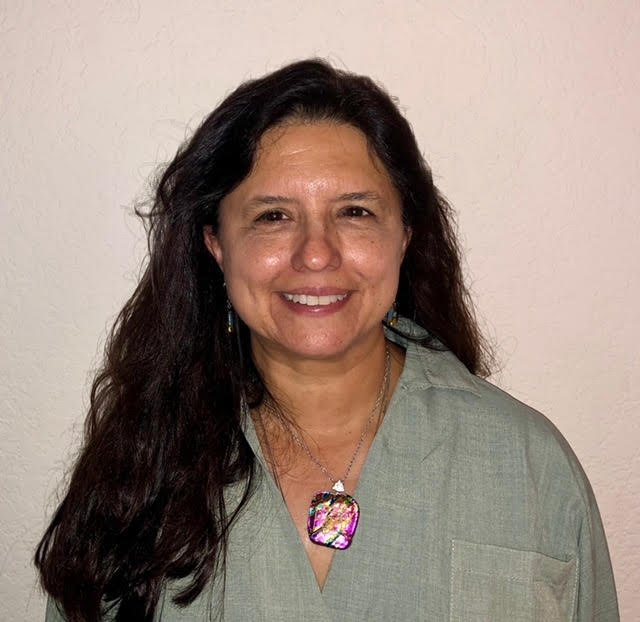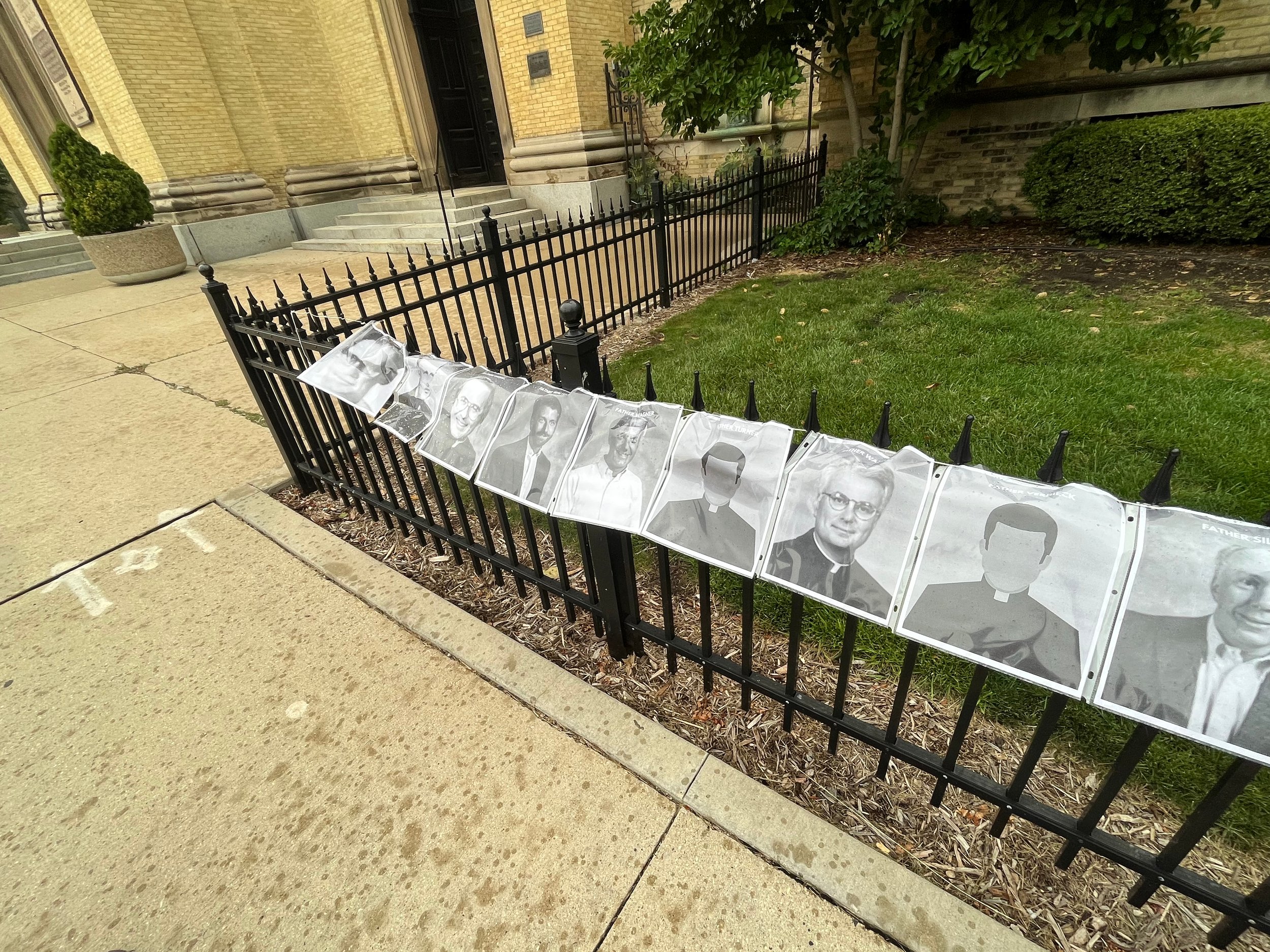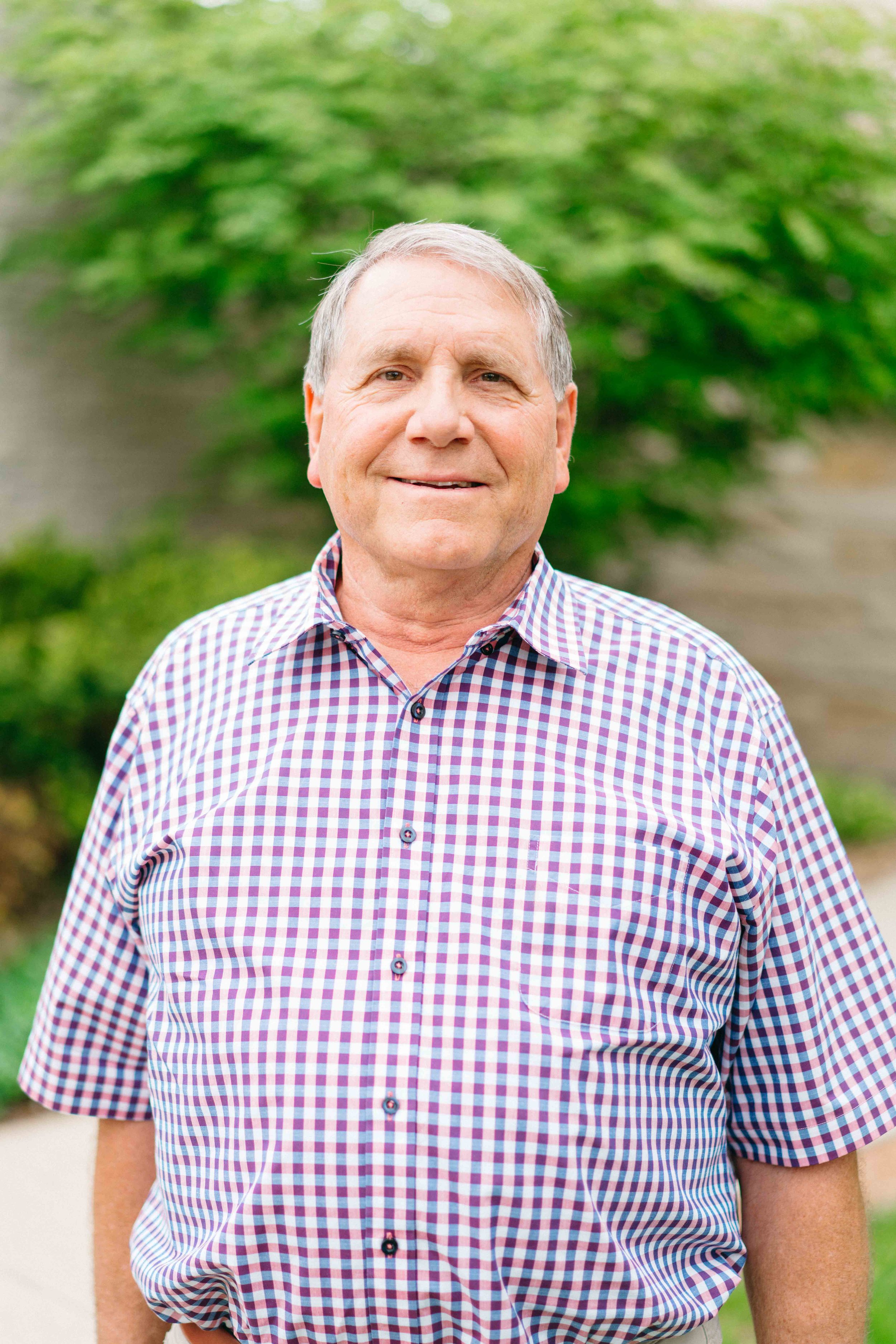Awake Blog
Welcome to the Awake Blog! If you’re new to Awake, we recommend you check out these top blog posts from our archive.
Sign up here to receive an email notification when a new blog post is published!

What Is Racism’s Role in the Abuse Crisis?
Last week Awake hosted a thought-provoking Courageous Conversation about the ways racism impacts the problem of sexual abuse in the Catholic Church.
The panel discussion, “Erased from the Narrative: The Role of Racism in the Abuse Crisis,” featured Fr. Bryan Massingale, a professor of ethics at Fordham University in New York and a priest of the Archdiocese of Milwaukee; Maka Black Elk, executive director for Truth and Healing at Red Cloud Indian School in South Dakota; and Jeremy Cruz, a professor of theology and religious studies at St. John’s University in New York. The recording of the conversation is available here.

Zac Zepeda
“Years of therapy and support groups have shown me that to heal I must talk about the abuse.”

Hopeful News about the Synod Process — and Awake’s Synod Report
After Awake Milwaukee hosted two synod sessions in June to ensure that abuse survivors, their loved ones, and concerned Catholics had a voice in the global listening initiative of the Catholic Church, we submitted our report to the United States Conference of Catholic Bishops (USCCB) and the Archdiocese of Milwaukee’s synod team. Awake’s complete synod report is available on our website.

Praying the Rosary with and for Abuse Survivors
On Tuesday, October 18, the Feast of St. Luke, a group of 30 lay people and clergy members from across the United States gathered on Zoom to pray a rosary with and for survivors of sexual abuse.
This prayer service used the Glorious Mysteries, inviting participants to reflect on the reality of abuse in light of God’s promise of resurrection and new life. Each decade of the rosary was led by a different survivor of abuse in the Catholic Church, who offered an intention based on their own experience.

Catholics Have Questions About Awake’s Next Step Recommendations. We Offer Answers.
We call the recommendations “Next Steps” because we see them as building on the progress the Archdiocese of Milwaukee has already made to assist survivors and address abuse by church leaders. But we believe more can and should be done. We developed these recommendations carefully over the course of two years by listening deeply to survivors and researching widely accepted best practices already implemented in other dioceses.

Explainer: What Is Restorative Justice, And How Can It Help Heal the Catholic Church?
Restorative justice is often discussed as one of many tools to address the twin crises of sexual abuse and leadership failures in the Catholic Church.

Deborah Rodriguez
“The greatest challenge I have had to endure as a survivor is shame. Because others forced me to keep silent about the abuse, I thought I was the one at fault, that I had done something wrong.”

Courageous Conversation: Abuse Survivors Share What They Want Catholics to Understand
Last week, Awake Milwaukee launched the third season of its popular Courageous Conversations series with “What I Want Catholics to Understand,” a panel discussion that featured five victim-survivors of abuse in the Catholic Church. A recording of the conversation is now available on Awake’s YouTube channel. Here we offer a summary of the main insights shared during the conversation, which was moderated by Sara Larson, executive director of Awake Milwaukee.

Part 4: Recommendations for the Archdiocese of Milwaukee – Transparency and Accountability of Lay-Led Advisory Boards
This week we continue to explore Awake’s recommendations for the Archdiocese of Milwaukee, developed to help our local church take next steps to address the evil of sexual abuse. Today we consider the third set of recommendations, which focus on unacceptable boundary violations that may set the stage for abuse. The complete set of recommendations for our archdiocese is available here.
Last week we shared part 1 and part 2 of the recommendations and explored why Awake is advocating for these changes. The recommendations come out of our efforts to learn from abuse survivors across the country and our careful research of best practices implemented in other U.S. dioceses.

Part 3: Recommendations for the Archdiocese of Milwaukee – Proactive Steps to Prevent Abuse
This week we continue to explore Awake’s recommendations for the Archdiocese of Milwaukee, developed to help our local church take next steps to address the evil of sexual abuse. Today we consider the third set of recommendations, which focus on unacceptable boundary violations that may set the stage for abuse. The complete set of recommendations for our archdiocese is available here.
Last week we shared part 1 and part 2 of the recommendations and explored why Awake is advocating for these changes. The recommendations come out of our efforts to learn from abuse survivors across the country and our careful research of best practices implemented in other U.S. dioceses.

Part 2: Awake’s Recommendations for the Archdiocese of Milwaukee – Keeping Adults Safe from Abuse
Today we take a closer look at Awake’s second set of recommendations for the Archdiocese of Milwaukee, related to the sexual abuse of adults. The complete set of recommendations for our archdiocese are available here. As we shared in a blog post earlier this week, these recommendations come out of efforts to walk with and listen to abuse survivors from across the country, as well as careful research of best practices implemented in other dioceses.

Awake Unveils Next-Step Recommendations for the Archdiocese of Milwaukee
Today we at Awake Milwaukee begin sharing a series of recommendations that we developed to help our local Church take further steps to address the evil of sexual abuse.
The Archdiocese of Milwaukee has already taken important steps to ensure a safer Church, but more action is needed. We believe the best response to sexual abuse in the Church has two parts: first, accompanying and supporting victim-survivors in their pursuit of truth, accountability, and healing, and second, working proactively to prevent future abuse.

Carol Longsdorf
“One of the most helpful things is working with a trauma therapist who has helped me understand why childhood trauma is so very difficult to uncover.”

Survivors Respond as Rembert Weakland is Honored with Archdiocesan Funeral
Today the Archdiocese of Milwaukee holds a funeral Mass for former archbishop of Milwaukee Rembert Weakland, who died on August 22 at age 95.
We at Awake know this may be a difficult day for many sexual abuse survivors and their loved ones, and the celebration of Weakland’s life may bring up strong, painful feelings. In a press release Awake issued today, we explained, “Sexual abuse, especially abuse by a religious leader, is a deep and long-lasting trauma, and we urge all people to be mindful of this reality when they speak about Weakland’s legacy.”

Why I Remain Catholic Despite the Sex Abuse Crisis
When the news of the McCarrick scandal hit the headlines, the blow to my family and our faith was devastating. Normally, I am an unabashed enthusiast full of love for the Catholic Church—sharing my faith even with secular friends—but these revelations reduced me to silence.

Awake Summer Prayer Service Celebrates the Beauty of Creation
Members of the Awake community gathered last week in a leafy clearing in Milwaukee’s Estabrook Park for a summer prayer service that included scripture, hymns, and poetry.

Researchers Seek Information About Jesuit Daniel Kenney, “The Monkey Priest” with Milwaukee Connections
A group of academic researchers at Creighton University in Omaha, Nebraska has been working to gather information about Daniel Kenney, a popular Jesuit priest credibly accused of sexually abusing boys who attended Creighton Preparatory School in Omaha between 1965 and 1989. Kenney’s career also included multiple periods in Milwaukee.

After Pope Francis’s Apology to Indigenous People in Canada, What Happens Next?
Last week Pope Francis made a six-day apostolic visit to Canada, where he met with leaders of Indigenous communities and apologized for the Catholic Church’s role in federally funded residential schools…


Bill Kessenich
“Pope Francis says that the Church needs to be a ‘field hospital’ for the marginalized. I believe that we survivors of trauma have roles to play as doctors and nurses for the field hospital.”
